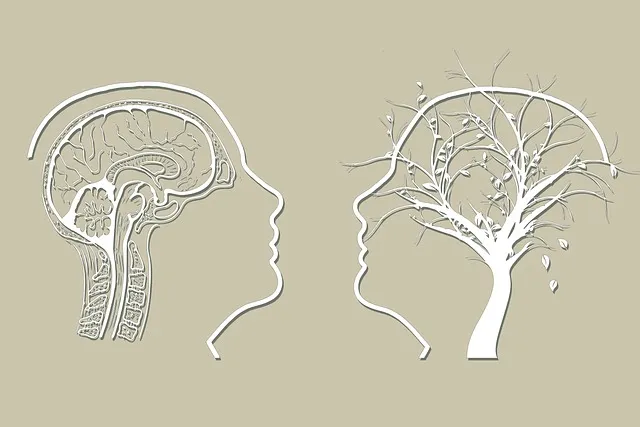The Golden Kaiser Permanente mental health department prioritizes cultural sensitivity as a cornerstone of high-quality care, addressing diverse patient needs through tailored services and comprehensive staff training. By embracing cultural competence, they overcome cross-cultural communication barriers, prevent therapist burnout, and promote holistic mental wellness for all patients, ultimately enhancing treatment outcomes and patient satisfaction within this diverse population.
“Navigating cultural sensitivity in mental healthcare is paramount, especially within diverse communities. This article explores strategies for enhancing cultural competency, focusing on the exemplary practices of Kaiser Permanente’s mental health department. We delve into ‘Understanding Cultural Sensitivity’ and uncover ‘Challenges and Barriers’ in cross-cultural therapy. Subsequently, we present actionable strategies implemented by Kaiser Permanente to improve care for all patients, ensuring a warm and culturally responsive environment.”
- Understanding Cultural Sensitivity in Mental Healthcare
- Challenges and Barriers in Cross-Cultural Therapy
- Strategies for Culturally Competent Practice at Kaiser Permanente
Understanding Cultural Sensitivity in Mental Healthcare

Cultural sensitivity is a cornerstone of high-quality mental healthcare. It involves understanding and respecting the diverse beliefs, values, and practices that shape an individual’s mental health experiences. In the context of the Golden Kaiser Permanente mental health department, this means recognizing the unique cultural backgrounds of each patient and tailoring services to meet their specific needs. This approach goes beyond simple translation services, encompassing non-verbal cues, family dynamics, and community resources.
By fostering a culturally sensitive environment, the mental health department at Kaiser Permanente promotes positive thinking and coping skills development. It enables patients from diverse communities to connect with caregivers who can empathize with their experiences, ensuring effective treatment without the barrier of cultural misunderstandings. Moreover, this sensitivity plays a crucial role in burnout prevention for healthcare professionals, allowing them to provide sustained, compassionate care to a varied patient population.
Challenges and Barriers in Cross-Cultural Therapy

The landscape of mental healthcare is increasingly diverse, with patients from various cultural backgrounds seeking support. However, providing culturally sensitive care presents several challenges for practitioners, especially in a large organization like Golden Kaiser Permanente’s mental health department (number unknown). These obstacles include limited cross-cultural training and education for therapists, leading to potential misunderstandings and miscommunications between patient and provider. Different cultural contexts shape unique expressions of emotional regulation and coping mechanisms, which can be overlooked if therapists are unfamiliar with these nuances.
Additionally, the pressure to accommodate diverse needs may contribute to therapist burnout, a growing concern in mental health professions. Effective cross-cultural therapy requires adaptability, empathy, and a willingness to learn and incorporate cultural perspectives. The Mental Wellness Podcast Series Production highlights these challenges, underscoring the need for comprehensive training and resources to ensure culturally competent care that addresses emotional regulation and promotes holistic mental wellness across diverse populations.
Strategies for Culturally Competent Practice at Kaiser Permanente

Kaiser Permanente’s mental health department is renowned for its commitment to culturally competent practice, a strategy that significantly enhances patient care and outcomes. This approach involves recognizing and appreciating the diverse cultural backgrounds, beliefs, and values of individuals seeking mental healthcare services. By fostering an inclusive environment, the department ensures every patient feels understood and supported throughout their journey towards recovery.
One of the key strategies implemented is providing culturally sensitive training for its staff, empowering them to deliver care tailored to individual needs. This training equips professionals with the knowledge and skills to navigate cultural differences, thereby boosting their confidence in treating a diverse range of patients. Additionally, such initiatives contribute to burnout prevention among mental health professionals by fostering an environment where they can provide personalized, effective treatments, ultimately aiding in depression prevention and promoting overall well-being for all Kaiser Permanente clients.
Cultural sensitivity is a cornerstone of effective mental healthcare, as it fosters trust and understanding between patients from diverse backgrounds and therapists. By addressing challenges such as language barriers and unconscious biases, Kaiser Permanente’s commitment to culturally competent practice ensures that the Golden Kaiser Permanente mental health department serves a wide range of communities with empathy and expertise. Implementing strategies like community engagement and diversity training equips professionals to navigate cross-cultural therapy successfully, ultimately enhancing patient outcomes.






